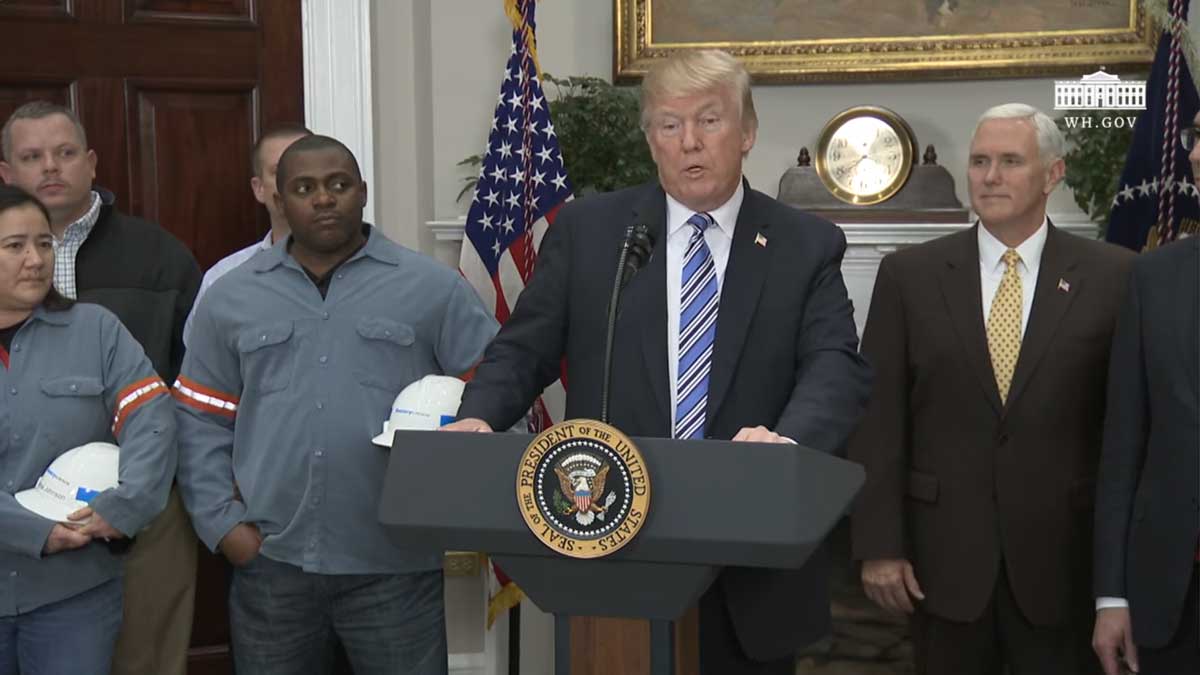President Donald Trump's tariffs on imported steel and aluminum would cost New Jersey businesses an extra $477 million -- more than all but seven other states -- according to a new study.
The report by the Tax Foundation, a conservative research group, shows that Trump's action would add a new burden to the state's business community, already concerned about the impacts of the Republican tax plan that shrunk a key tax break for the Garden State.
The tariffs would cost businesses $9 billion, with $5.7 billion, or 63 percent, falling on businesses in just 10 states, including New Jersey, the report said.
"The impact of these tax hikes may ultimately be shared by most American consumers, but the initial costs will be concentrated among a narrow segment of U.S. states," Tax Foundation President Scott Hodge said.
Trump, using his power under Section 232 of the Trade Expansion Act of 1962, announced on Thursday that he was imposing a 25 percent tariff on imported steel and 10 percent tariff on imported aluminum.
"If you don't have steel, you don't have a country," Trump said. "Our industries have been targeted for years and years -- decades, in fact -- by unfair foreign trade practices leading to the shuttered plants and mills, the laying off of millions of workers, and the decimation of entire communities. And that's going to stop."
Rep. Leonard Lance, a member of the House Energy and Commerce Committee, expressed concern that the tariffs could hinder the ongoing economic recovery.
"While the executive action includes temporary exemptions for Canada and Mexico, these broad tariffs will likely harm U.S. jobs, manufacturers and consumers," said Lance, R-7th Dist.
Both Lance and Rep. Bill Pascrell Jr., D-9th Dist., said Trump's focus should be China.
"For too long, China's cheating has hurt American workers and undermined our manufacturing base," said Pascrell, a member of the House Ways and Means Committee that has jurisdiction over trade. "We must work with our allies to confront China multilaterally and promote fair trade in which all countries play by the rules."
Rep. Rodney Frelinghuysen, R-11th Dist., expressed concern that tariffs would hurt national security.
"At a time when global threats are rising and evolving, the United States needs all the partners and allies it can get," Frelinghuysen said. "I cannot see how new worldwide trade wars, undertaken in retaliation to our broad-based streel and aluminum tariffs, can promote security cooperation."
New Jersey business leaders were united in their opposition to the Trump tax plan, which curtailed the federal deduction for state and local taxes.
Tom Bracken, president of the New Jersey Chamber of Commerce, said during debate on the tax bill that it "would make New Jersey less affordable and less competitive, and impede our ability to climb back to an acceptable level of prosperity."
